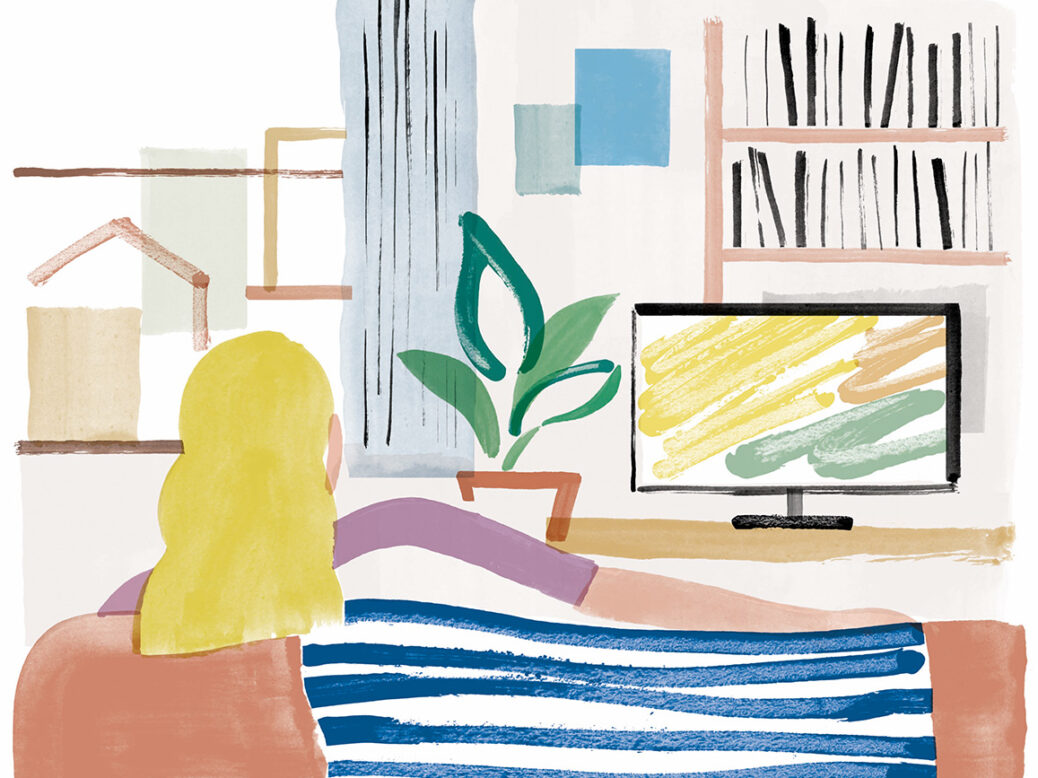
I’ve been thinking a lot recently, for reasons that do not need to be laboured, about what I inherited from my father.
He must have strong genes, because he has had three fair-haired (well, helped along with bleach these days, in my case), blue-eyed children with two brown-eyed, brown-haired wives. I’ve got his freckly arms, too, which he used to joke about playing dot-to-dot on. And his slightly wonky nose, that if you drew a line directly down the middle of both our faces would be rather too much in one half.
I’ve got his anti-Tory politics, and his pro-Man U football (he’s technically from Oldham, but we don’t challenge him on his choice of team) – though I take rather more interest in one than the other. He taught me the importance of a firm handshake, and that no self-respecting fan owns greatest hits CDs, though he lost the battle of the vowels; much to his horror, his children say “gr-aah-ss” and “b-aah-th”.
My expensive taste is down to him, too. Don’t ask me to explain why I had to have a Dualit toaster when I barely had the money for the bread to go in it; I just did. He’s an architect and an aesthete, and while I am not so arrogant as to claim to have inherited this particular trait, I find ugly surroundings disproportionately depressing. Ask me why I love dark, muted colours, or hate carpets and light-blue jeans and tan shoes, and the answer is: Dad. Also on the Just Say No list (and it’s not just me, my brother helped me compile this): the Beatles and Pink Floyd, Russell Crowe and Tom Cruise – each of which I will swear to without being able to justify.
But the gift for which I am most grateful is the “I could make that” gene. With it I have conjured croissants and cushions, cakes and coats. My father, for his part, is a talented woodworker (this, I have not inherited: the last time I used a drill it went all the way through a door) and over the years he has, on demand, produced pieces of furniture to fit the most awkward of spaces. A tall, thin bookshelf-cum-bedside table, on the underside of which he drew a cartoon of a man doing a moony, with the words “this is the bottom”. A trolley that fit, jigsaw-perfect, between two kitchen cupboards. Growing up, our house was full of such pieces – including my desk.
I thought of it recently, that unwieldy piece of Douglas fir, as I moved my laptop from room to room at home, searching for the perfect place to write. It is a funny lie writers tell themselves – that it is not that we can’t find the words, but simply that they’re waiting for us in another place. Each of us, given the right desk, the right view, the right ambient sound, would be a Woolf or a Rushdie or a Tartt.
That particular desk was ground-zero for my first, unselfconscious attempts at story-writing, hammered out on a boxy grey Macintosh almost as big as me. And for my first business venture: the tidy sum of £100, withdrawn with parental permission from my Post Office savings account, and spent on goods from the Brighton Bead Shop catalogue, to be lovingly plier-ed into jewellery and sold at school fairs.
I have written in a few other notable places since: the Airbnb dining table where I wrestled with my first (and so far only) feature for this magazine, about the Oxford English Dictionary. The top floor of a house overlooking a beach in St Ives, Velux windows thrown open to the sounds of gulls and surfers, where flowed 30,000 words of a novel that I have barely touched since. In the shower at my mum’s house, the only place I found myself able to untangle the knottiest parts of my undergraduate dissertation. I was very clean that spring.
But still, I find myself missing the desk my father built for me with his hands. I don’t know what happened to it; not grasping what it might come to mean, I let it go as a teenager in a house move. I suppose if I hadn’t it would only be languishing in my grandmother’s garage, along with the rest of my possessions, and I would no doubt still be blaming the absence of my magnum opus on it.
In recent years my rediscovered love of sewing has enabled me to return the favour for my father. A patch here, a bespoke drawstring bag for his camping chair (yes, really) there. At the moment I am piecing together a chore jacket in a heavy cotton twill for him. As I sew, I wonder if I will inherit this too one day, hopefully in the far-off future; it will mean all the more for it, and I will never let it go.
[See also: Aftersun review: an accomplished debut]
This article appears in the 08 Feb 2023 issue of the New Statesman, Silent Sunak






